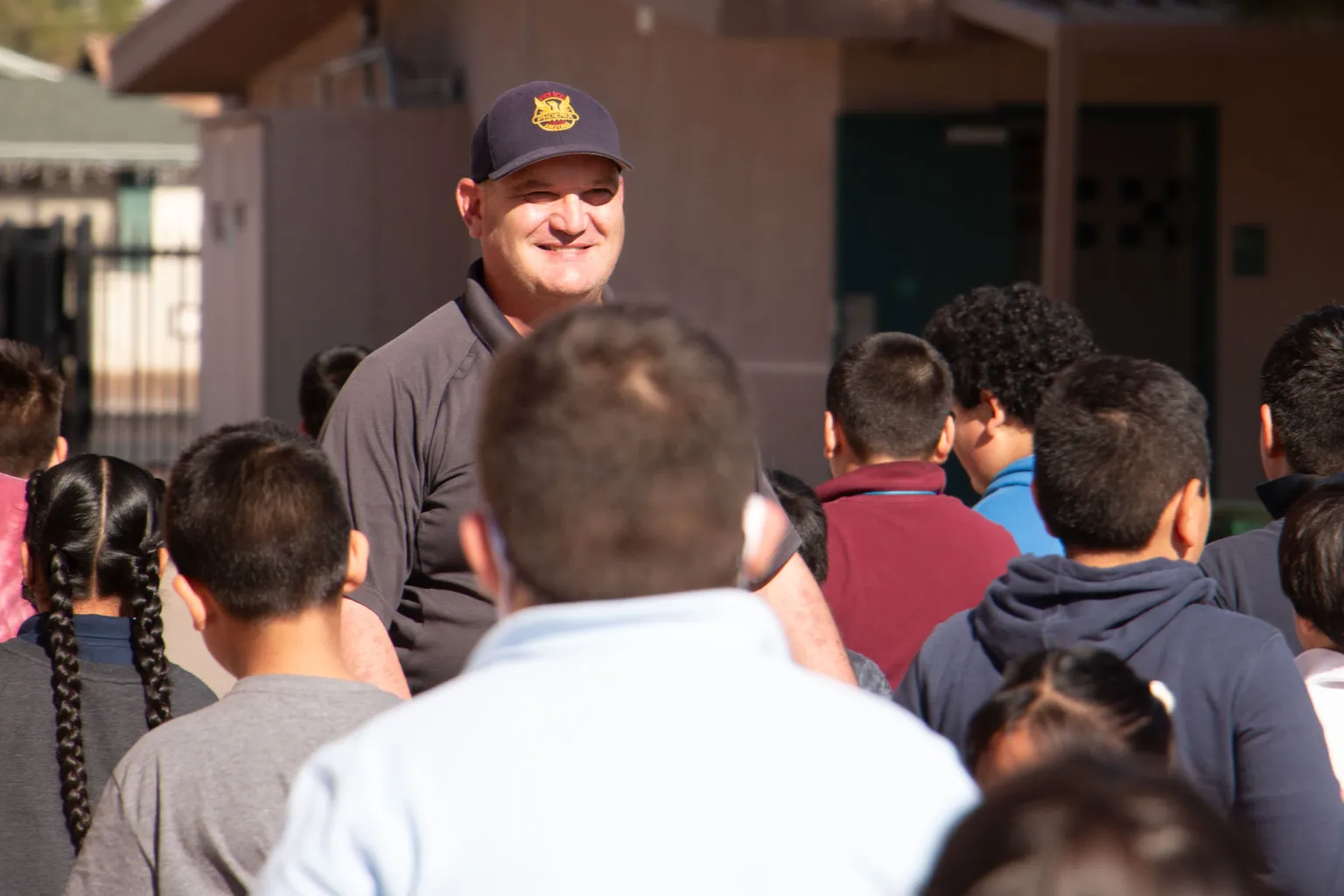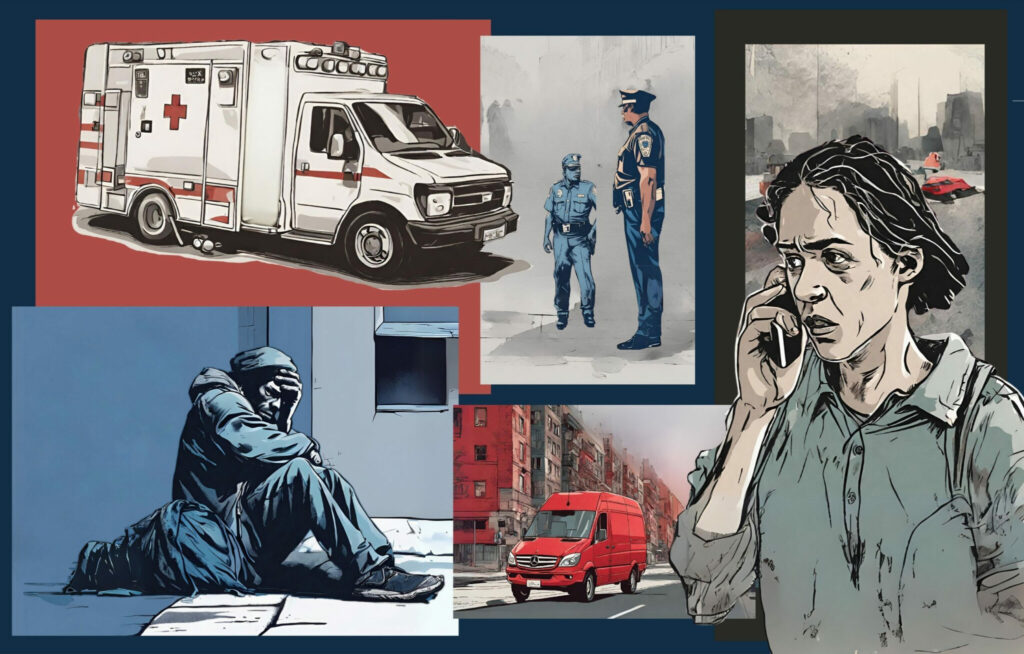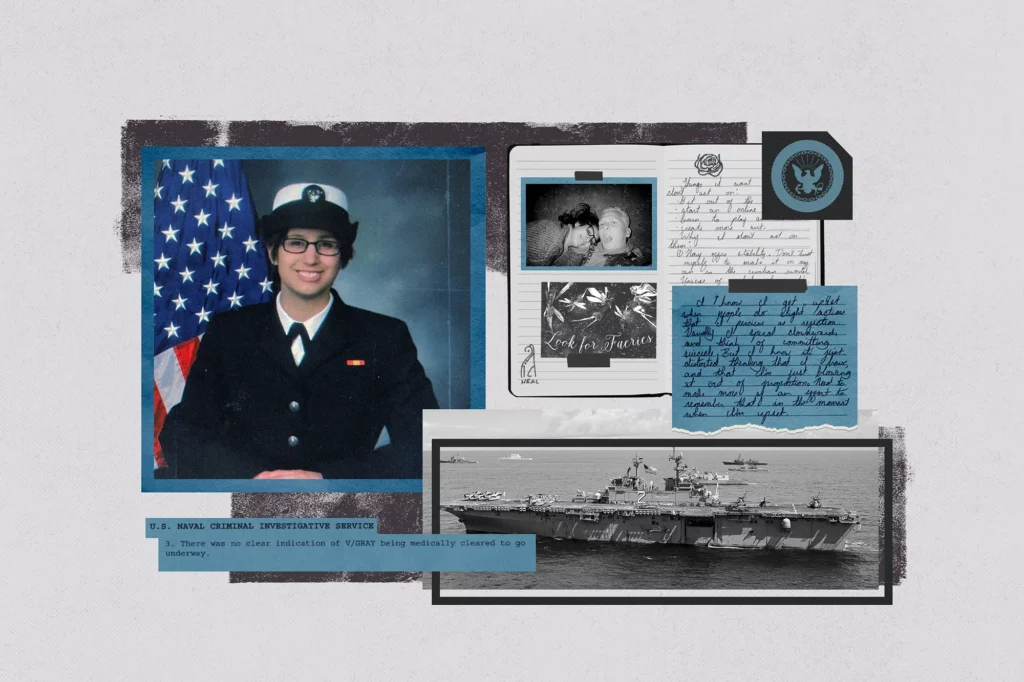GOP-led push to fund police over counselors leaves some schools ‘in the lurch’

Arizona Center for Investigative Reporting (AZCIR) by Maria Polletta, December 14, 2023: Brian Miller is a fixture at Charles W. Harris School in Phoenix, a familiar face kids and parents encounter four days a week.
Mornings and afternoons, the school resource officer is in the parking lot directing traffic — and sometimes, he notes, defusing a little road rage. Before lunch, he’s on the playground herding students toward the cafeteria, or in classrooms where teachers have requested help. In between, he’s walking the campus or in his office, on standby for serious disciplinary incidents or lockdowns prompted by crimes nearby.
What he doesn’t do, Miller acknowledges, is provide comprehensive mental health services to the many students who need them. That’s where Cartwright Elementary District’s counselors and psychologists come in.
District officials believe both types of positions are essential for a secure campus, which is why they asked the Arizona School Safety Program to fund one officer and one additional counselor at 19 of their schools, including Harris, this year. In all 19 cases, the state paid for only the officers, the result of a 2022 legislative requirement forcing the Department of Education to prioritize requests for campus police over mental health positions.
In fact, more than 100 schools throughout the state received officer funding while a counselor or social worker request went unfulfilled this year, as Superintendent of Public Instruction Tom Horne embraced the strings Republican lawmakers had tied to the grant money. In another 130 cases, schools that asked only for mental health positions did not receive them, according to an AZCIR analysis of School Safety Program data.
Overall, district and charter schools requested funding for 857 counselor and social workers and 301 campus officers, citing problems with bullying, trauma, suicidal ideation, truancy and more in the hundreds of applications reviewed by AZCIR. About a third, or 291, of those mental health positions went unfunded after the grant program ran out of cash.
The apparent mismatch between what schools need and what certain state leaders want to give them reflects an ongoing clash over which types of positions actually make a campus safer. In the wake of tragedies like the Uvalde, Texas elementary school shooting, proponents of campus police say officers are the professionals best equipped to respond to dangerous situations, while advocates for expanded mental health services argue counselors, social workers and psychologists could help stop many of those situations before they start.
Read more from AZCIR here.




